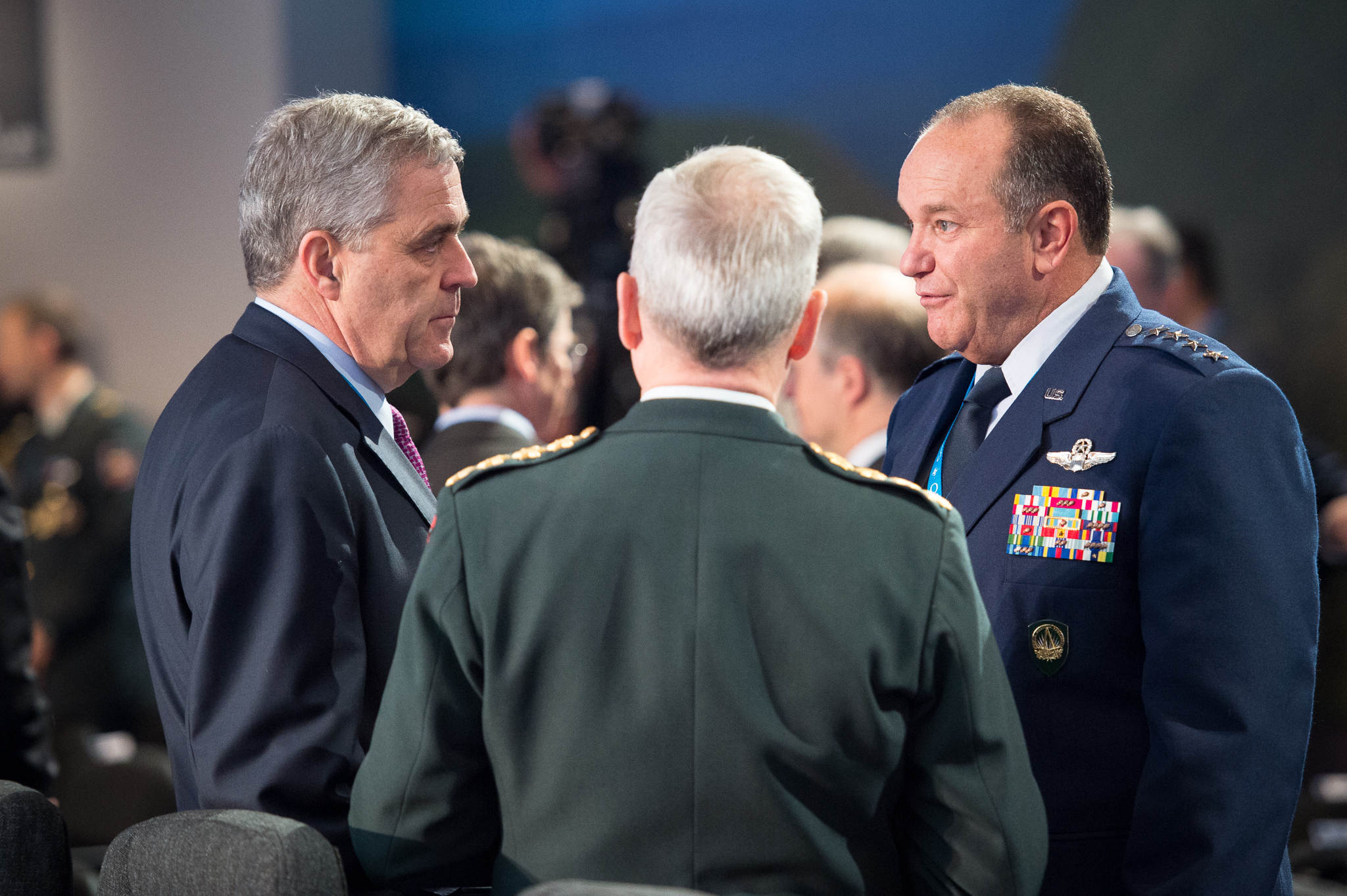BASIC would like to thank Peter Huessy, President of GeoStrategic Analysis, and the Air Force Association, for facilitating this event.
- François Rivasseau
Minister Plenipotentiary, Deputy Head of Delegation,Delegation of the European Union to the United States* - Dr. Oliver Meier
Associate, International Security DivisionSWP Stiftung Wissenschaft und Politik*
German Institute for International and Security Affairs* - Affiliations are provided for background information only. Both speakers presented in their independent capacities.
- Moderator: Rebecca Cousins, Program Director, BASIC
BRIEF SUMMARY OF MAIN POINTS DISCUSSED
Europe:
• Much of Europe continues to favor global nuclear arms control, including international non-proliferation architectures, WMD-free zones and further weapons reductions. Moreover, there remain expectations for the United States to continue to take a leading role on nuclear arms control measures.
• There is no single European position on nuclear weapons – but the lines are slowly changing.
• Strategic discussions are taking place within NATO, however these are unlikely to yield fast or immediate changes.
France:
• There is openness to discussing changes in NATO’s tactical nuclear weapons posture. But there is no appetite for changes to France’s own nuclear arsenal and posture. This was underscored in the French defense White Paper released earlier this year.
Germany:
• President Obama’s Berlin speech was well-received in Germany, because it reaffirmed the U.S. commitment to nuclear disarmament, and to engaging and including Russia.
• Both public and parliamentary opinion in Germany reflects overwhelming support for withdrawal of NATO weapons from Germany. There are differences of opinion, however, in how to go about it. The current government supports withdrawal, contingent on NATO consensus and engagement with Russia.
• Germany has opted not to buy Joint Strike Fighters from the United States, meaning that when Germany’s existing dual-capable aircraft are decommissioned (somewhere between 2025 and 2030), Germany’s role in nuclear burden-sharing is likely to come to an end.
• The German government views modernization of the B61-12 bombs as a national decision for the United States. But under NATO terms, they expect the B61-12s to be compatible with their aircraft.
Russia:
• Many in Europe believe Russia should be a constructive part of the future European security architecture. Others – particularly in Eastern Europe – continue to have reservations.
• Russia seems unlikely to make quick changes to their position. Perceived emerging threats from China and from the South (Pakistan and Iran) will impact their policy making.
B61 nuclear bombs:
• NATO’s nuclear weapons play a predominantly political role in Europe. Not all Europeans support their presence, but some continue to. Those who do are more attached to their political symbolism, rather than their military utility – they view them as a demonstration that Article V of the NATO treaty (which relates to collective defense) exists.
• Little thinking has been done on alternative assurances for new NATO members.
Question and Answer session at The Capitol Hill Club
BASIC is grateful to The Prospect Hill Foundation for funding the Strategic Dialogue series.
- On Twitter: #StratDialogue

